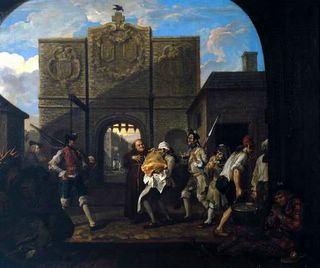When a Punjabi overseas hears of makki di roti and sarson da saag does his heart not hearken for his native land? In university, when we grumbled about lecturers from Sonar Bangla, did fish not figure prominently in the nicknames and rude verse we created? And then later, would I not discover that when some Bengalis proudly assert their identity, they use the same phrase those mocking them did, and say: "we are fish-eaters!"
Do most Muslims I know not have a dietary obsession, where injunctions concerning drugs, alcohol, modesty, sexual propriety - all can be ignored, but the one great taboo is Pork? And in Desh, has not beef-eating conversely become almost an article of faith, the right to eat cow being one of the reasons put forward to necessitate division of countries and people!
Our Tibetan neighbours do not identify membership of their community on the basis of language, or religion, though we may think so. For them, the answer to who is a Tibetan is this: A tibetan is one who eats tsampa (roasted barley flour). When the imperialist Han Chinese invaded, they too followed the idea of identity by diet, asserting the superiority of rice-eaters over tsampa-eaters. And in occupied Tibet today, that's how identity and communities are divided, by what is served at the dinner table. Food matters.
Over here in Europe, the French contemptously refer to the English as les rosbifs - the roastbeef. If the name's meant to give offense, then it's a dismal failure. The men tasked with guarding the the Crown Jewels (yes, yes, including the kohinoor, the mountain of light, which Desis tend to get so excited about) are famously known as the beefeaters. And one of the proudest statements of English identity comes from the patriotic artist William Hogarth, whose most famous work was known as - quite appropriately - The Roast Beef of Old England.

This entertaining painting is set in France, and it shows on one hand, snivelling and scrawny French soldiers, subsisting on meager offerings like watery soup - and on the other, the substantial and nutritious diet of the lads of Blighty, who feast on fine Roast Beef.
Sequel to this to follow, maybe.
